Observation skills Science Worksheets for Ages 4-8
8 filtered results
-
From - To
Boost your child's curiosity and cognitive development with our Observation Skills Science Worksheets designed for ages 4-8. These engaging resources help young learners sharpen their visual and analytical abilities through fun activities, including matching, spotting differences, and noting intricate details in various scientific contexts. Perfect for home or classroom use, these printable worksheets ensure kids develop critical thinking while having fun. Give your little ones the tools they need to observe and explore the world around them with confidence. Discover the joy of learning with our expertly crafted observation worksheets at Kids Academy.


Matter: Assessment 1 Worksheet
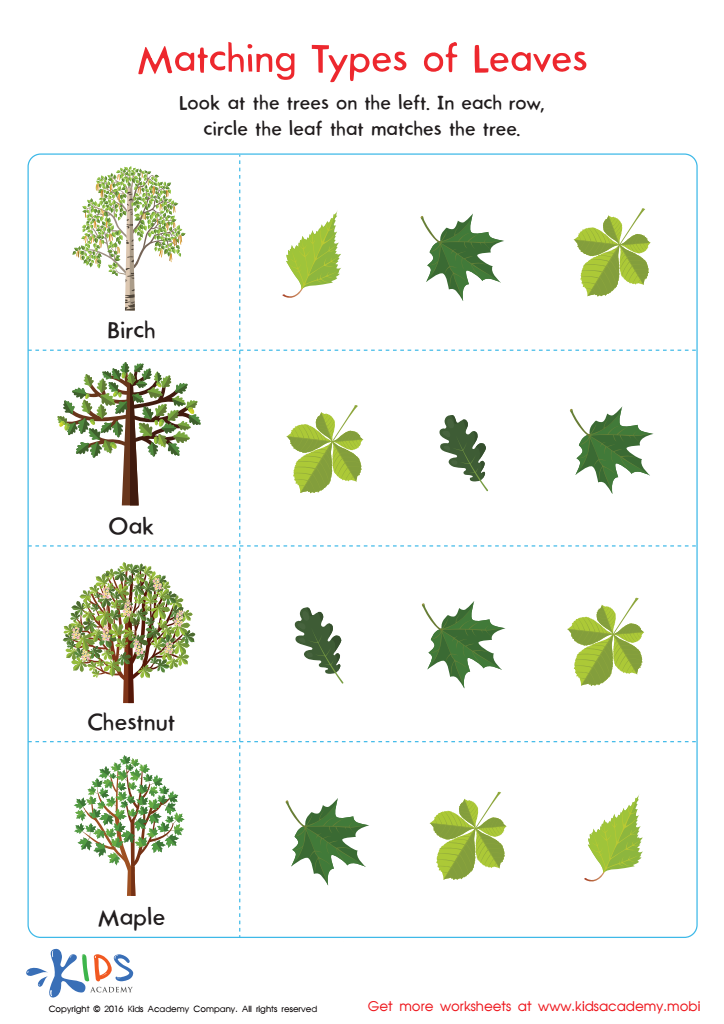

Matching Types of Leaves Printable
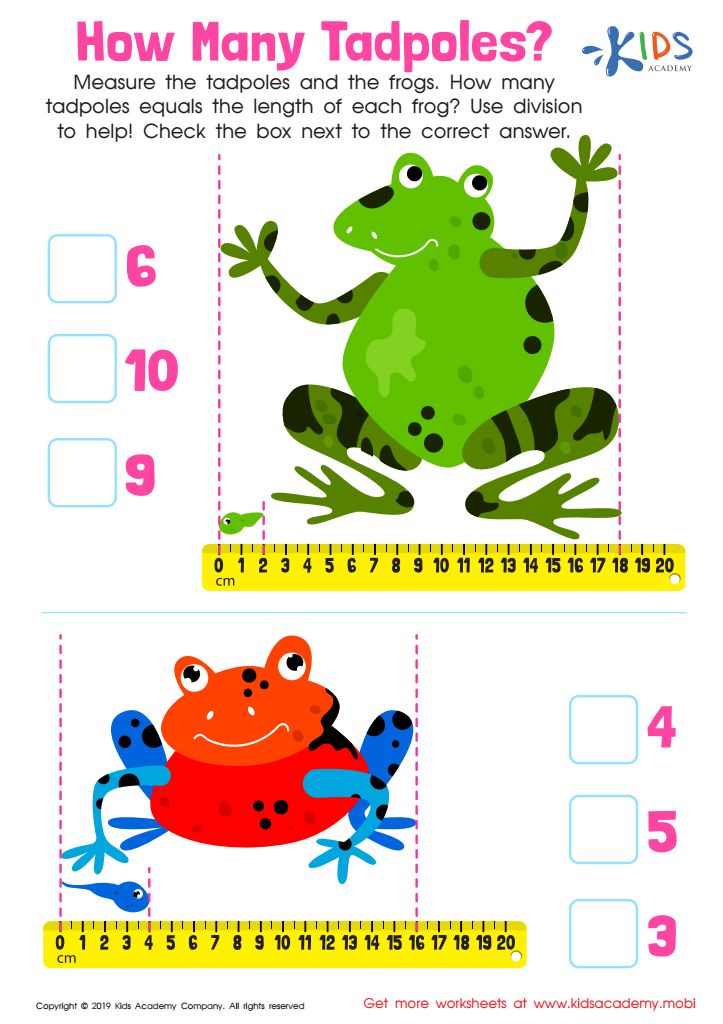

How Many Tadpoles Worksheet


The 5 Sense Scientist Worksheet
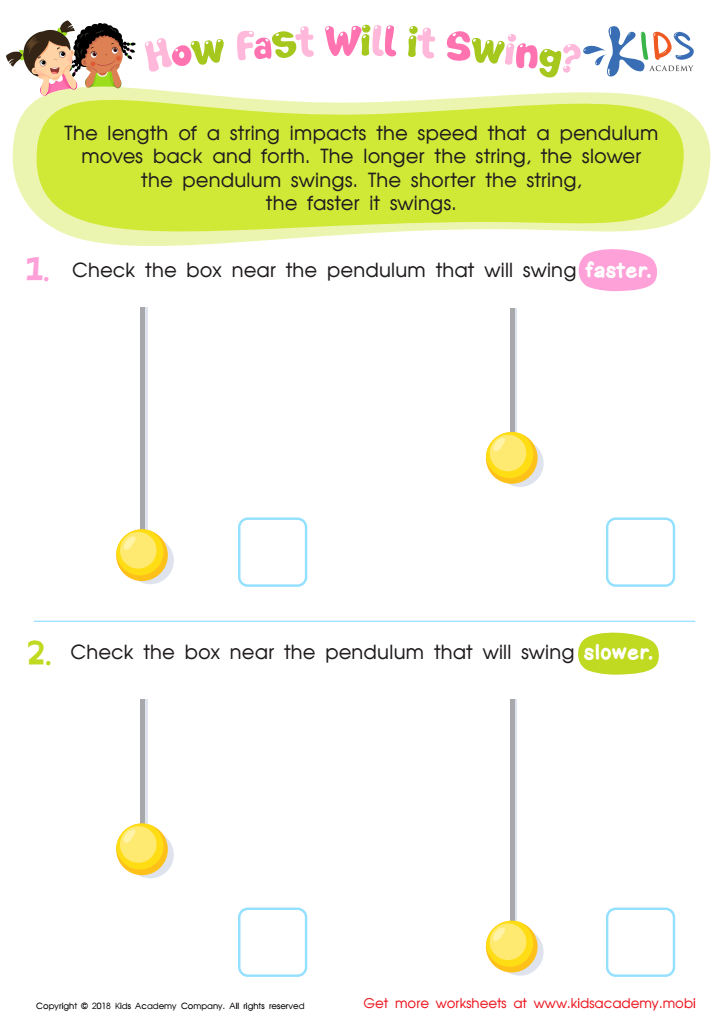

Pendulum Experiment Worksheet For 3rd Grade
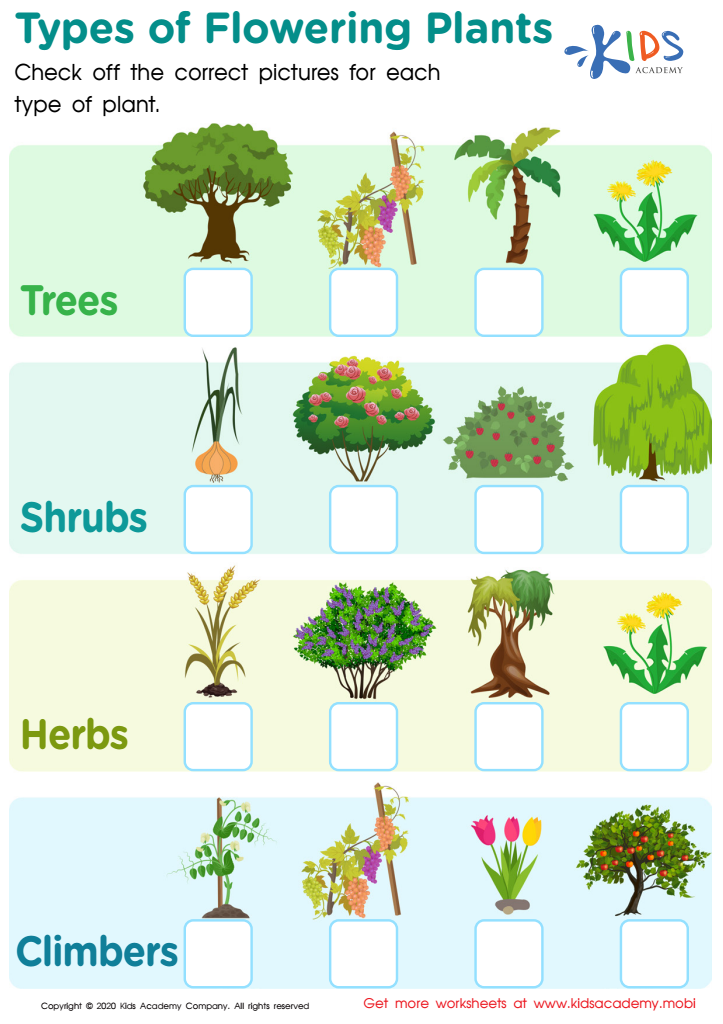

Types of Flowering Plants Worksheet
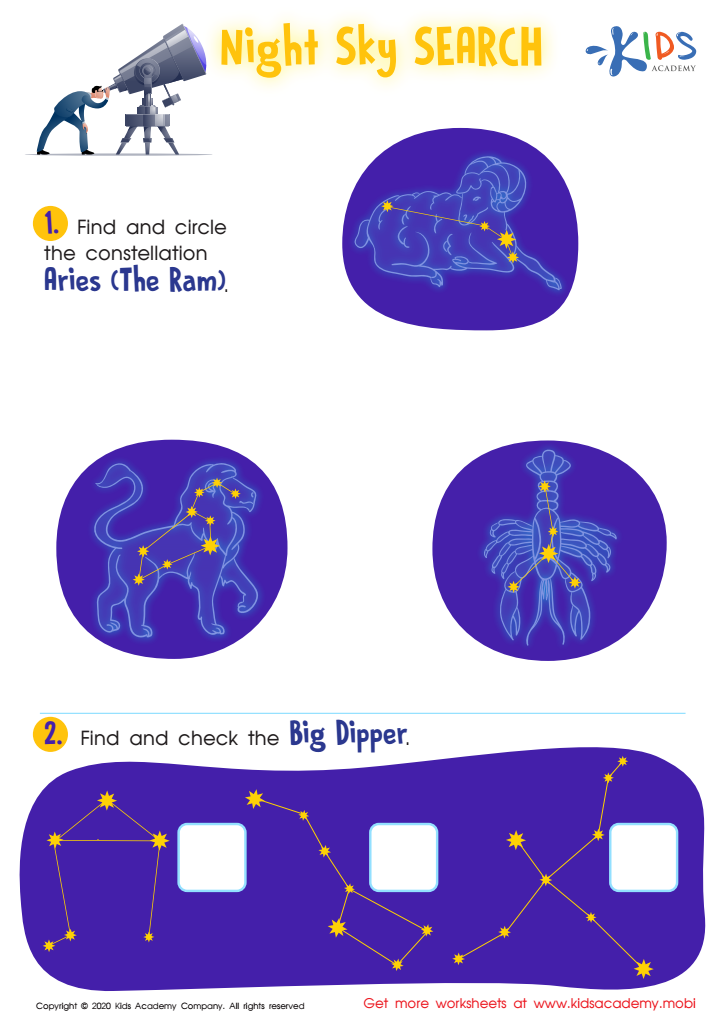

Night Sky Search Worksheet
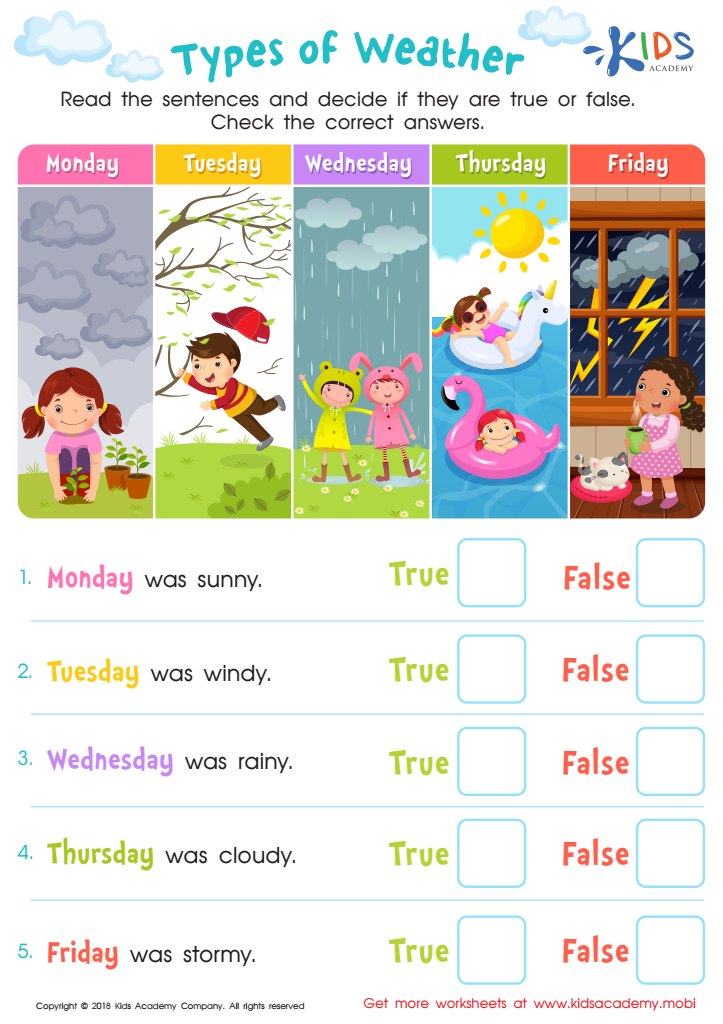

Types of Weather Worksheet
Observation skills in science are foundational for children ages 4-8, offering a pathway to lifelong learning and curiosity. At this developmental stage, young minds are exceptionally receptive to new stimuli, making it an ideal time to cultivate a sense of wonder about the natural world. Observation fosters critical thinking, as children learn to describe, compare, and contrast various phenomena. Whether spotting differences in leaf shapes, noting weather changes, or watching insects, these activities lay the groundwork for scientific inquiry.
Parents and teachers play pivotal roles in nurturing these skills. When adults engage children in observation, it validates their curiosity and encourages deeper exploration. Activities like nature walks, simple experiments, or even discussing everyday occurrences can stoke a child's fascination and result in questions that lead to further investigation.
Moreover, these formative experiences impact academic success. Observational skills are the basis for understanding more complex scientific principles later on. They also develop attention to detail and patience, traits beneficial across various subjects including math, reading, and art.
Cultivating observational skills results in more than academic benefits. It nurtures a broader understanding of the environment and ecosystems, fostering a generation that is more mindful and appreciative of the natural world around them. Giving children these tools ensures they grow into inquisitive, thoughtful, and knowledgeable adults.
 Assign to My Students
Assign to My Students







.jpg)
.jpg)










